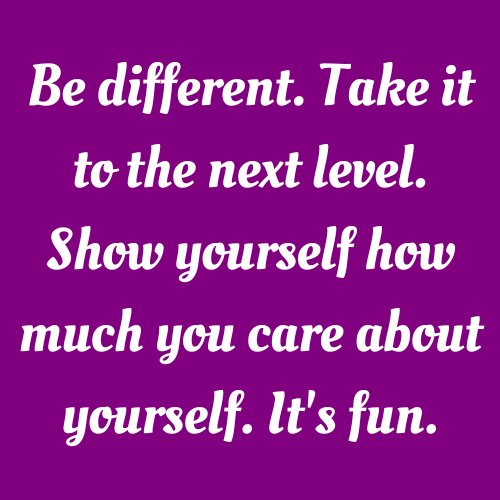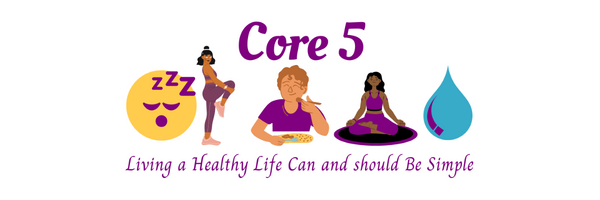We belong to a species that walked on the moon. We invented calculus, can clone organisms, and can travel the planet in a day. However, we also spend time doing the unimportant, the unnecessary, the stressful. We’re pushed to do work that doesn’t matter by people who don’t care for outcomes of little significance. We’re overdo for a conversation. Let’s have some real talk: how to deal with stress.
Especially in the western world, we live in an environment obsessed with work. People are so enmeshed with productivity. Workplaces make employees stick around a certain amount of time even on the days when there’s no work left to do. People check their work emails when they should be spending time with their children, friends, and family. People brag about how little time off they take. There’s this illusion that it seems so many people have that if they’re just busy doing something, anything, it matters. However, being busy is different from being productive.
This way of conducting ourselves has become the norm. It’s a bit odd, and slightly terrifying, isn’t it? Whatever your personal situation or environment looks like, I invite you to look on this topic with fresh eyes, just for a moment. If you have the patience to read this whole piece, afterwards, you can go back and forget you ever saw this if you like.
Some relatable examples
Let’s start with some simple truths. We don’t have to spend our days getting worked up about checking our email more than once or twice a day. Or about how other people are living their lives and doing things. We don’t have to get worked up about making less money than others if we can still live the lives we want to live. We don’t have to put our company or other people ahead of ourselves, especially when they won’t offer us the same courtesy. It’s a choice.
Tech is supposed to free up our time, to make life less stressful, but it’s led to us always being “on” because there’s no excuse to not be doing things 24/7 anymore. Tech can free up our time, but only if we’re intentional about it.
Maybe you have a “nice” friend or coworker, though they occasionally stress you out. You have every right to do something about it, to build a boundary to take care of yourself and to manage your stress. You can choose if it’s too “expensive” a situation to not do something about.
We can choose to say goodbye to an abusive employer who takes advantage of our time and peace-of-mind by having unrealistic expectations – having us work outside of hours, expecting us to answer emails when we should be cooking dinner with our family, stressing us out and thus degrading our health.
Stress affects everything. It may be the most evil villain to those of us who care about our health. We can choose to take a day each week to turn off all our screens, to sit in an empty room and let our thoughts run free for a few minutes here and there, we can choose to not waste large chunks of our time researching something just because it might make something easier for someone else. We can choose to not check our phones or email until 10am, and to only check them once a day. If someone sends us an email to do something for them, but doesn’t clarify or wants us to do work we shouldn’t be doing, we can choose to ignore it.
If your response to any of this is, “But my employer wouldn’t stand for that,” then consider if it’s time to recognize how little respect you’re getting and if it may be time to make a change. No one can be “on” all the time. Rest and downtime are absolutely essential for our health (and for productivity, though a lot of the world seems to not have accepted this yet).
What we need to realize as unique, whole, wise humans
My point with these examples is that it has to be a conscious choice. We have to choose to stand up for ourselves, even at risk of slightly inconveniencing others (gasp!). This can be really hard when we’re surrounded by people who take the small, meaningless stuff so seriously. Really, really hard if those people are influential in our life, like bosses at work. Though, this can also be a great way to gauge how much others respect you. It’s empowering! Some people may look at you funny for standing up for your own peace and for managing your stress, and these are generally people who think that drowning in the chaos is normal. Maybe they’ve never considered an existence outside it. Maybe you could inspire them.
Only you know what stresses you out. It’s different for everyone and therefore we must all be thoughtful about looking after ourselves, whatever this looks like for us as unique individuals. As you build boundaries, it can be uncomfortable at first, as most new things are. But I promise the sun will still rise tomorrow and birds will still sing. Building boundaries is a way for us to take control of our lives. We build boundaries, strict ones if we like, and thus show the world that we can take charge.
My friends know I will never answer a call because my phone is permanently on silent – I tell them to text me and set up a specific time if they want to call because I refuse to waste my time and concentration checking a screen every few minutes. I also go out sometimes without my phone. When I say this, people look at me like I just confessed to a crime. I just smile back. Such actions make me happy because it’s a show of self-respect. I go for stretches of days, sometimes full weeks, where I turn my phone off completely. This may be extreme for some, but the point is we must find what works for ourselves.
I mention the uncomfortableness of building new boundaries because it’s important to be realistic. It’s common to run into some awkward moments, but any way you do it, it can be constructive. Either you learn more about the people around you and how they are going to treat you in response to you standing up for yourself, or you have a really constructive, understanding talk with someone that brings you closer together too. If you have good intentions for standing up for your own peace, and are proposing something that won’t harm others, one of these two outcomes should result. Either way, progress.
How to build a boundary
Don’t overcomplicate it. Clarify what you want changed, how you’re going to make it happen, respectfully tell anyone involved (stooping to their level by being accusatory or rude would defeat the purpose – we must also be aware of how we add stress to others’ lives), be firm, and most importantly, be proud of yourself for standing up for you. People, more often than not, will respect you and look at you more highly if you can work up the courage to do this. It takes guts.
Stress affects everything
Stress reduces our quality of sleep. Processed foods become more tempting. We will drink more sugary drinks and less water. Our stress response will exhaust us, making exercise less tempting. It literally degrades us in every single Core area, and the negative effects continue to cascade into every facet of our lives. When we take this seriously, we can greatly improve our health, our peace, and our life satisfaction. Who are others – people, companies, anyone – to do this to us? To degrade our health in so many ways?
Sometimes I think, what if we were a society that were collectively so disgusted by anyone who tried to do us this horrendous disservice of thoughtlessly adding stress to our lives? What if it became socially frowned upon, to degrade people’s health through adding unnecessary stress in the way that is so common in our lives today?
Conclusion
We need to recognize what’s pounding on the door – doing more and more work won’t continue to improve our lives. In fact, we can all see clearly that it often does the exact opposite. Tech and innovation were supposed to make our lives easier and better, yet we’re unhealthier than ever.
In modern life, there’s always more to do. We may think that we just need to do a few more things, then we’ll be at the point where we’ll be done, and then we’ll be able to turn off and relax. Sound familiar? But the truth is, we will never get there. That point doesn’t exist for us (see my post On Imperfection).
There will always be more to do. We are absolutely swamped with material things, with opportunities, with the internet and apps on our phones. We’re so stupidly, ridiculously pummeled into submission in our 21st century with information, marketing ads, with all our screens, with people shoving things in our faces that they want us to pay for. I mean, aren’t we a little exhausted by it all? Are we not a little tired as a society? The more-more-more trap that a work-obsessed society creates is an invasive disease when it comes to managing our stress. We must put in the work to build the courage and bravery to have a level of self-respect strong enough to create boundaries. To find make space, stillness, and rest for ourselves.

When it comes to boundaries: Be different. Take it to the next level. Show people that disrespect is something you won’t take. Show yourself how much you care about yourself. It’s fun. And oh so satisfying.
Can this approach promise peace and happiness? No. There is no guarantee of this. But we can guarantee that we’ll stay in control of ourselves throughout the the messy journey of life. And this is everything. Now, please stop reading this piece here.
Freedom App
Ah jeez, you didn’t stop reading! Oh well, I admire your dedication and thank you for sticking it out till the end. Now you get to watch me be a hypocrite.
Willpower will never be 100% reliable all of the time, so there is an app called Freedom that blocks out websites of your choice for custom periods of time, which can be helpful for reducing distractions. I’m including this because I think that building boundaries starts with protecting our attention. It takes somewhere around 20 minutes to regain our focus on something after getting distracted – once you realize how often workers check their emails, you’ll start to realize the state of productivity in work environments around the world – yikes!
I personally use Freedom to block out all social media, emails, and an online chess site that I’m slightly addicted to when I need to focus and write. It’s a simple, easy-to-use app, and I like it because it’s very customizable – you can create groups of websites to block, and can even schedule it to block for a specific chunk of time each day so that you don’t have to set it up day after day, it’s just automatic and runs in the background.
Click here (affiliate link) to head to their site and get a free trial, no credit card required. They do have options to buy monthly or yearly subscriptions, or a one-time payment to get it forever. I encourage you to take advantage of the free trial to start – at the time I’m writing this, it includes 7 free blocking sessions – and simply see if it’s useful for you.
If you do end up paying for Freedom through my link, I will receive a commission. This helps me to be able to keep hosting this website and spend time writing posts for Core 5 and for that I sincerely thank you.

